Best chef's knives: 6 top knives for home chefs
Pick up the best chef's knives for your kitchen with our reviews of top knives from Robert Welch, Stellar, Our Place, and Allday
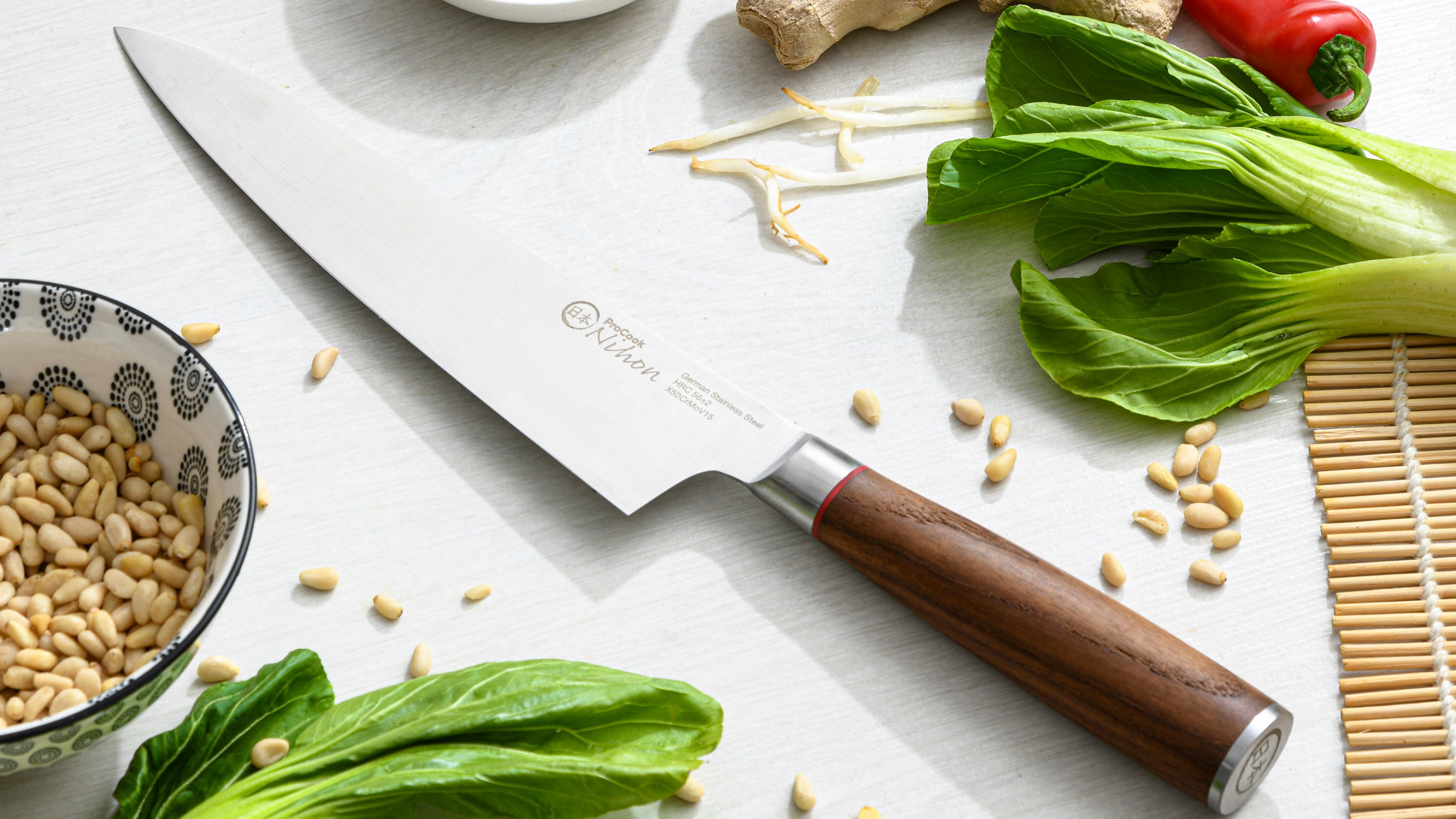
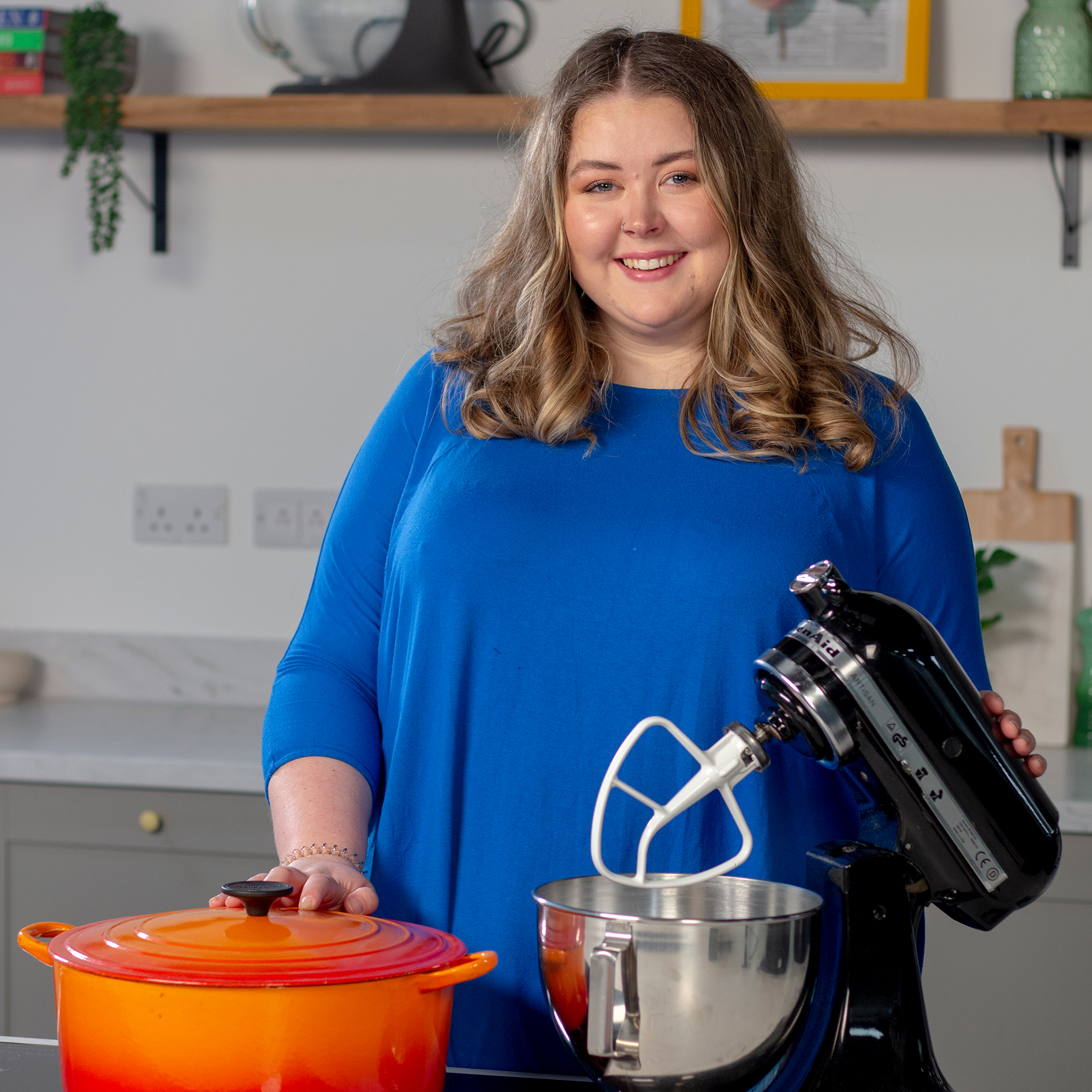
The best chef's knives will be the workhorse of your kitchen, keeping meal prep safe and speedy. Ask any chef and they'll tell you that their knife is their most prized kitchen possession, so whether you're shopping for yourself or a foodie friend, our reviews of these top chef knives have got you covered.
It's no secret that the safest knives are the sharp ones. These offer accuracy and prevent kitchen mishaps, but part of having the best chef's knife is keeping it in top condition for day-to-day use. Read our full roundup to find Japanese santoku knives as well as classic chef's knives. These knives have ergonomic handles to balance any weightiness, and will not need too much maintenance if used correctly.
You may be in the market for the best knife set, complete with block and a selection of paring and bread knives. However, a chef's knife is the most multi-functional option you can choose if you're on a budget or you want an additional option that can live in your kitchen drawers.
We tested all of the chef's knives you see below, from brands such as Robert Welch, ProCook, Viners, and Allday. With budget-friendly options that come in at under £50, as well as premium choices that are designed to last for decades, keep on reading to find the right one for you.
Best chef's knives
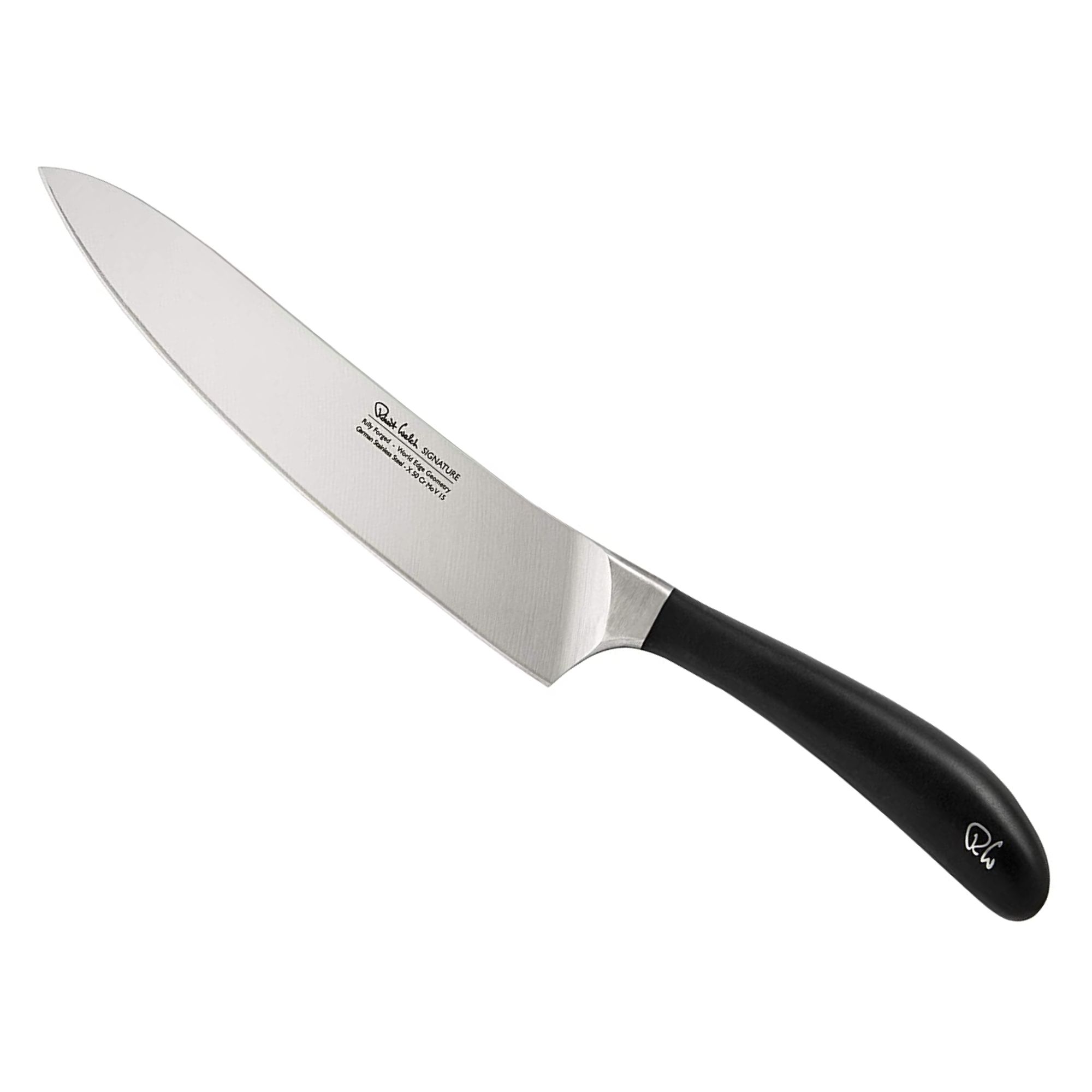
This full-tang German steel cook’s knife with Japanese-style, hand-applied 15˚ edge comes in a variety of blade lengths, from a petite 12cm to a large 25cm.
This chef's knife definitely held its own in terms of harder root vegetables such as swede and carrot, and the curve of the blade lends it very nicely to a rocking chopping motion.
The blade was great for chopping foods very fine – potato for dauphinoise for instance – but still substantial enough to efficiently cut up large pieces of meat. A good-value, versatile knife.
For
- Gorgeous look
- Works well for fine slicing
- Curved blade for rocking action
Against
- Needs to be cleaned by hand
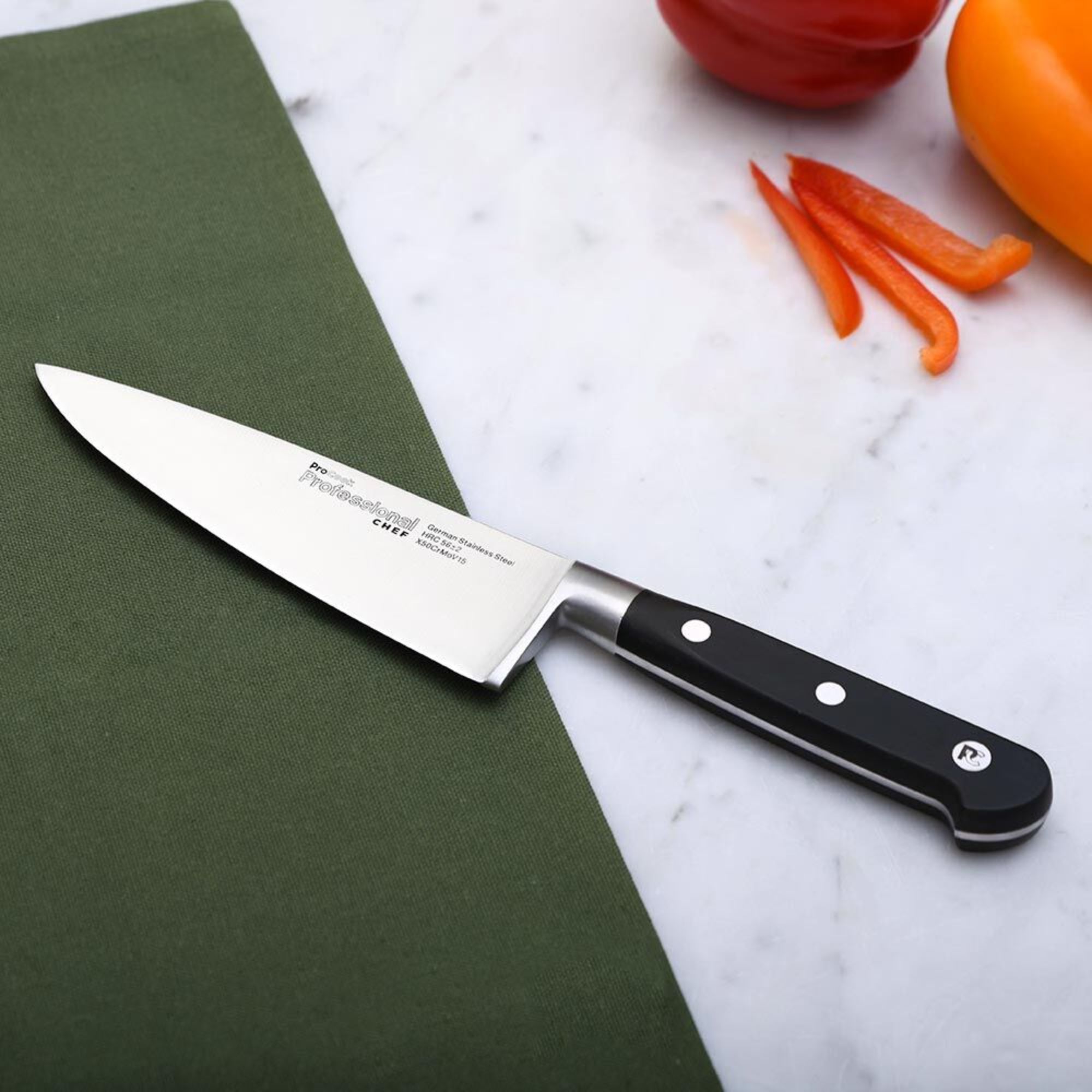
The classic triple rivet contoured handles of this Chef's knife ensures that it's made to last. It's very multi-functional thanks to the 14.5cm length which makes it suitable for small tasks as well as meats or vegetables. Of course, it could struggle with really big tasks such as pumpkin, but ProCook sells the knife in a range of sizes.
We were really impressed by the price and value-for-money of this knife. It's remained sharp throughout prolonged use and the curved blade has made it easy to rock the knife while chopping herbs or smaller veggies.
What's more, it's backed by a 25-year guarantee. What's not to love?
For
- 25 year guarantee
- Brilliant price
- German X50 stainless steel design
Against
- a bit small for large items (but it does come in a range of sizes)
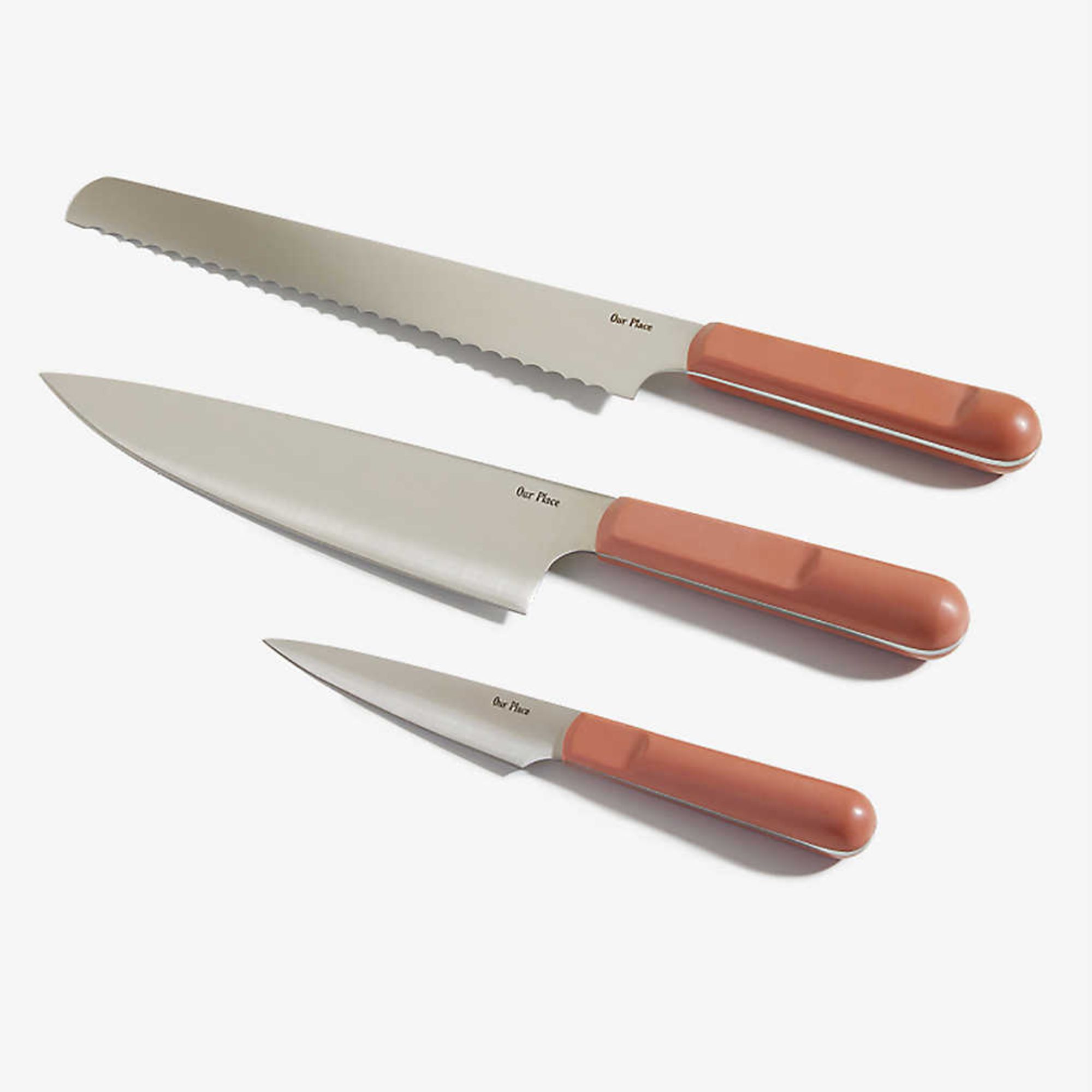
Home of the Always Pan, one of the best non-stick frying pans on the market, Our Place is known for making stylish and practical products that you can use every single day. The plastic handle is sturdy and unfussy, and you can choose from four colours when picking your knife.
This set features three knives. The Chef's knife used to be sold separately but now is only available as a set. We're big fans though, especially for those who don't have space for a knife set but want a knife for every function your kitchen could need.
As for the blade itself, it arrived incredibly sharp and stays that way for a pretty long time before it needs to be sharpened. The full-tang blade (that means it runs down the handle too) is made from premium German steel, so the quality is pretty impressive for the price.
For
- Full-tang blades
- Great for small kitchens
- Available in a range of colours
Against
- Only comes in a set

An Amazon favourite, the Paudin Professional Chef's Knife brings amazing value for money. It's got a wooden handle that's grippy and looks great, but we did have to wash carefully to prevent damaging the wood. The blade itself is excellent, made of German high carbon stainless steel.
We were able to chop vegetables, cut meat and fish, and slice fruits with no difficulty whatsoever, and even after a few weeks of testing the blade didn't sustain any damage or need sharpening.
There's no cover included with this knife, but it does come in a stylish box that could definitely double up to keep it safe when not in use.
For
- Reasonably priced
- Multi-functional option
- Comes in a secure box for storage
Against
- Wooden handle can't be submerged
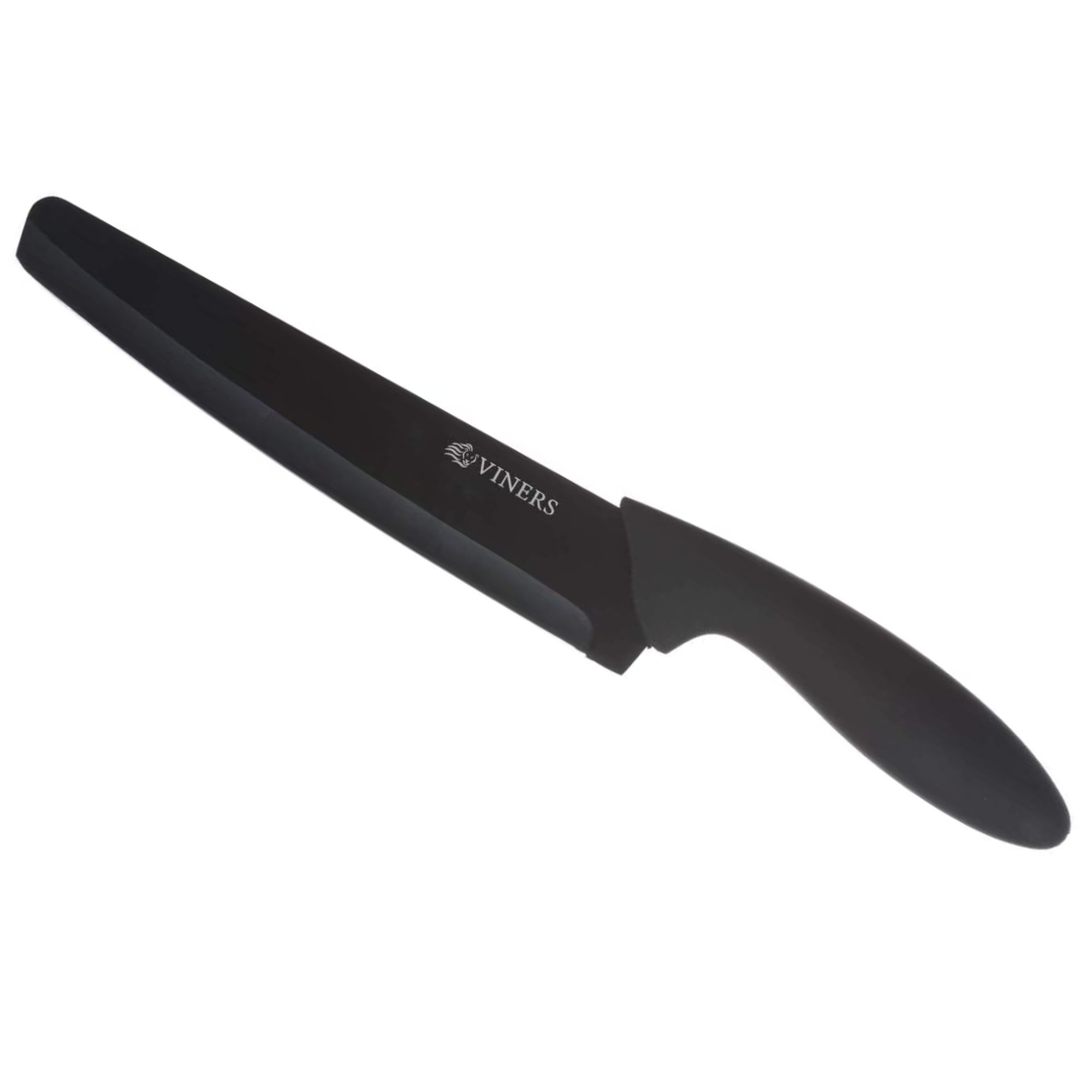
The Viners Assure 8” Chef Knife is amazingly affordable and genuinely high quality. The matte black handle is soft-feel and lovely to hold, and the non-stick coating means veggies and meat fall off the knife instead of sticking in place.
It stayed sharp for months and months after the initial testing and the black finish has not peeled or flaked. The block ending of the knife means there’s no sharp edge that could potentially catch your fingers while chopping.
This also makes it easy to store, because the knife can point down on a magnetic grip without fear that it would hurt anyone or catch any kitchen items if it were to fall.
For
- Safety tip
- Stays sharp
- Works well on magnetic strips
Against
- Tricky to sharpen without disturbing coating
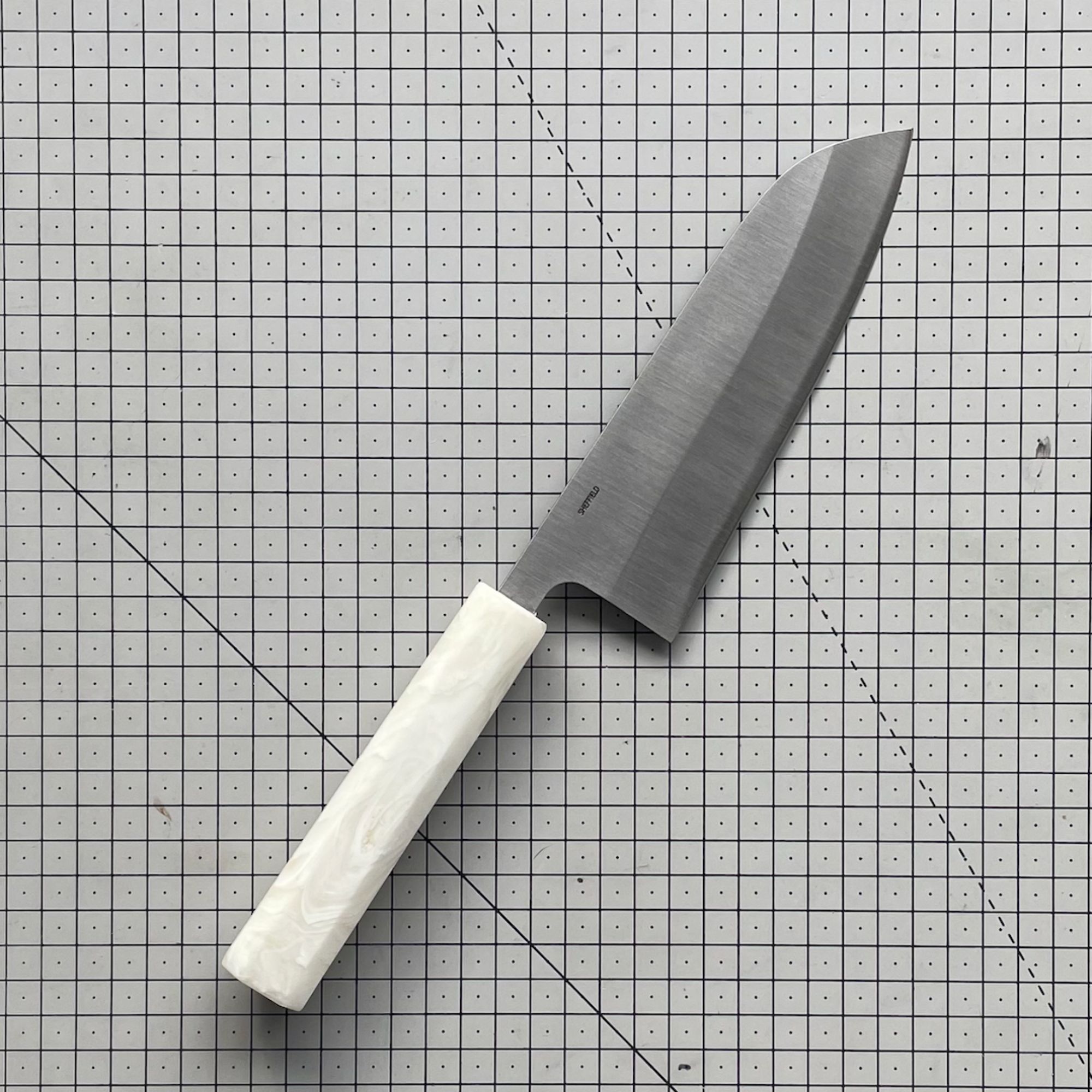
Your kitchen is responsible for a lot of the waste that leaves your home, so it's nice that the Allday Chef's knife is an eco-conscious, locally-made option.
The knife handles are made from plastic waste and the blades are made in Sheffield from scrap metal. So far they’ve saved 1,534KG of plastic from landfill. They're released in small batches and do sell out, so keep your eyes peeled for a knife that would really tell a story in your kitchen.
When it came to testing, we were completely blown away by the quality, just remember to keep it nice and sharp. You'll want to hang onto this one for generations.
For
- Blades made in Sheffield from metal scrap
- Handles made from plastic waste
- Unique design
- Outstanding quality
Against
- A more expensive option
What is a chef's knife?
"A chefs knife is a multipurpose knife that's well-suited to most chopping and slicing tasks", says ProCook's Rob Falconer, "making it a staple in most kitchens and a great choice if you want a knife that can do it all."
"A chefs knife has a gently curved, wide blade designed to 'rock', allowing you to safely cut at speed, and is thicker towards the heel for better balance in the hand and extra strength when tackling tougher items like root vegetables. This sturdy knife can cut through most vegetables and meats with ease and is perfect for everyday chopping, slicing and dicing."
How to buy the best chef's knife for you
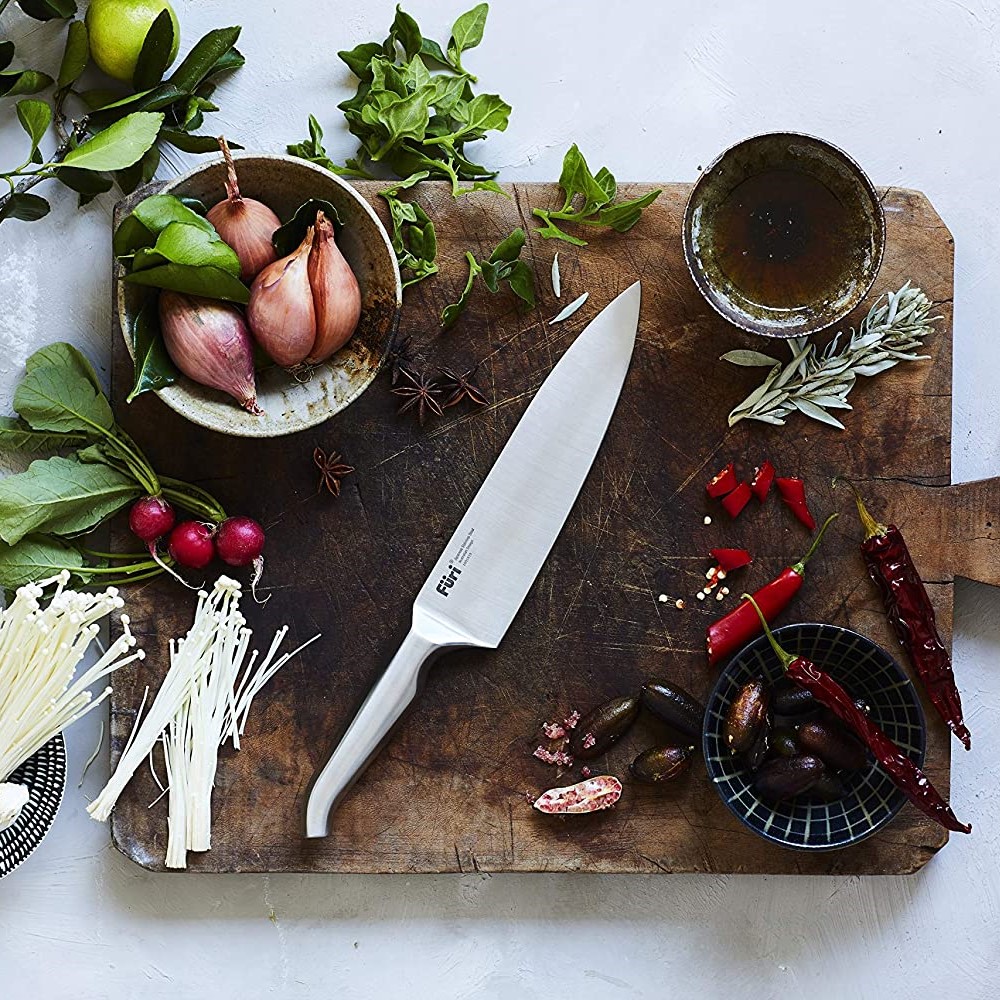
Knives aren’t simply a blade and a handle. They have several elements, including the tip, belly (the curve of the blade), the butt and a bolster, which is the thicker part where the blade meets the handle. The bolster is key, as it's used to balance the knife and is mostly seen on forged knives.
Some knives also have a tang, which is the part of the blade that runs through the handle. A full tang runs through the whole of the handle to the butt (end) while a partial tang just runs some of the handle’s length. Tangs ensure the handle is well-balanced and strong, making it less likely to break if it’s put under pressure – cutting through bone for instance.
What is a Rockwell rating?
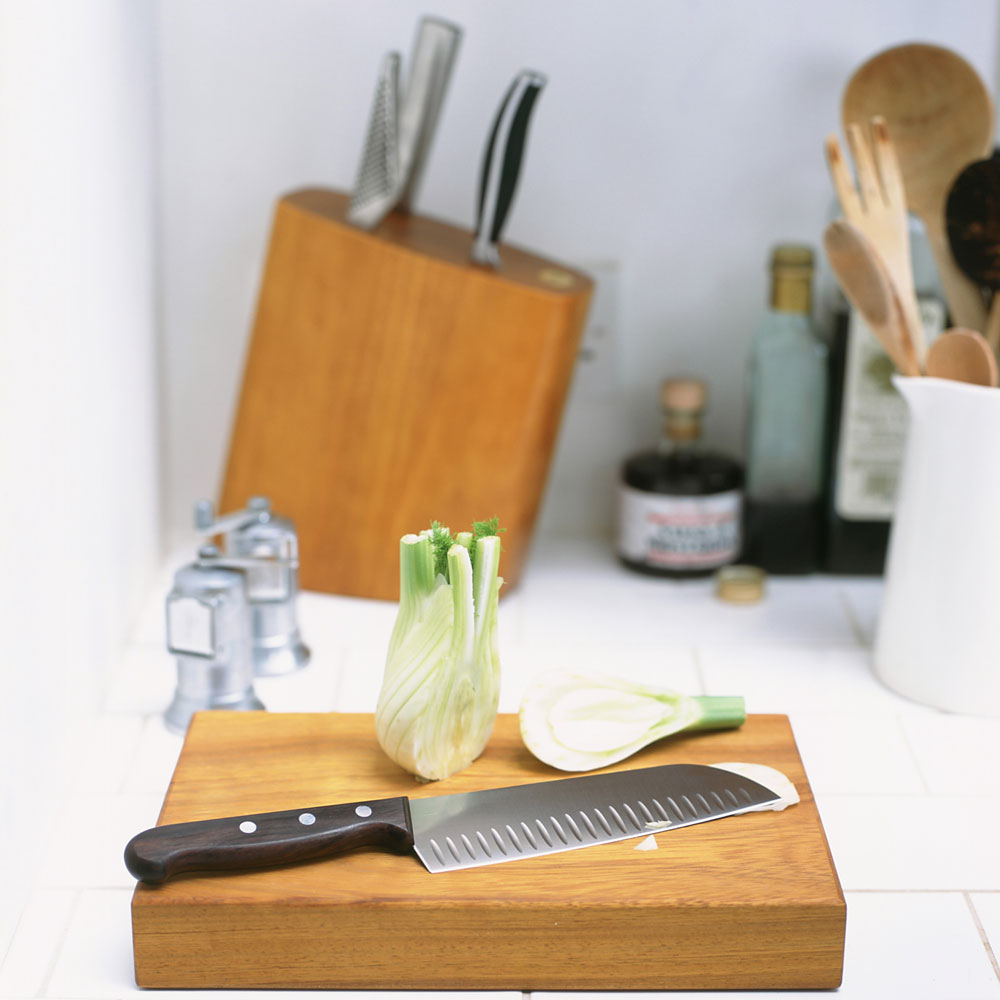
The Rockwell Hardness Scale (RHC) measures how much of a dent in metal with a measured amount of weight a diamond point will make – the smaller the mark, the harder the steel. The RHC rating of your knife is useful to know if you’re looking for an all-purpose, sturdy knife that won’t snap or chip under pressure.
A general-use ‘softer’ steel knife can range from 54-56, while more professional style premium blades, from 58-64 at the upper end. The higher the rating, the thinner the blade can be forged, creating a finer, sharper cutting edge but there are trade-offs as knives this hard can be brittle, chip if misused and take longer to sharpen.
As a general rule German blades tend to be on the lower end of the scale, while Japanese are on the higher.
Should I put my knife in the dishwasher?
"Avoid putting your knives in the dishwasher where you can, as a dishwasher produces a lot of heat and steam that will expand and warp the metal, says Rob Falconer from ProCook. "
"Dishwasher detergent can also be abrasive, damaging the look and integrity of the blade and handle. Instead, handwash your knives, dry them off completely, and avoid leaving your knife to air dry as this can cause rust to form."
Looking after your new knife
According to Rob Falconer, Head of Range at ProCook, "A good, sharp edge makes knives safer to use but it also streamlines food prep and prolongs the lifespan of your knives, so regularly sharpening your knives with a knife sharpener or a whetstone is recommended. In comparison, a dull knife makes slicing and dicing difficult, can be dangerous and puts your knife at risk of chipping."
Get the Ideal Home Newsletter
Sign up to our newsletter for style and decor inspiration, house makeovers, project advice and more.

Millie Fender is Head of Reviews at Ideal Home. She joined Ideal Home as an Ecommerce Editor in 2021, covering all of the site's small appliance and cookware shopping content. Millie formerly worked at Top Ten Reviews, another Future site, where she produced review and buying guides across a range of home products, from fridges to blenders. As Head of Reviews, her job is to test all the wackiest product launches, whether they're air fryers, bread makers, or juicers, and give you her honest experience.
-
 5 signs you’ve taken decluttering too far — and how you can pull yourself back, according to organisation experts
5 signs you’ve taken decluttering too far — and how you can pull yourself back, according to organisation expertsYou might have to start resisting the urge to purge
By Lauren Bradbury
-
 What is the Party Wall Act 3m rule and is it something you should be worried about? This is what the experts say
What is the Party Wall Act 3m rule and is it something you should be worried about? This is what the experts sayDon't get caught off-guard by the Party Wall Act 3m rule — our expert guide is a must-read
By Natasha Brinsmead
-
 Shoppers can’t get enough of The Range’s lemon tree, but I’ve found an even cheaper bestseller at B&Q - it’s perfect for a Mediterranean look
Shoppers can’t get enough of The Range’s lemon tree, but I’ve found an even cheaper bestseller at B&Q - it’s perfect for a Mediterranean lookWelcome the summer with this glorious fruit tree
By Kezia Reynolds